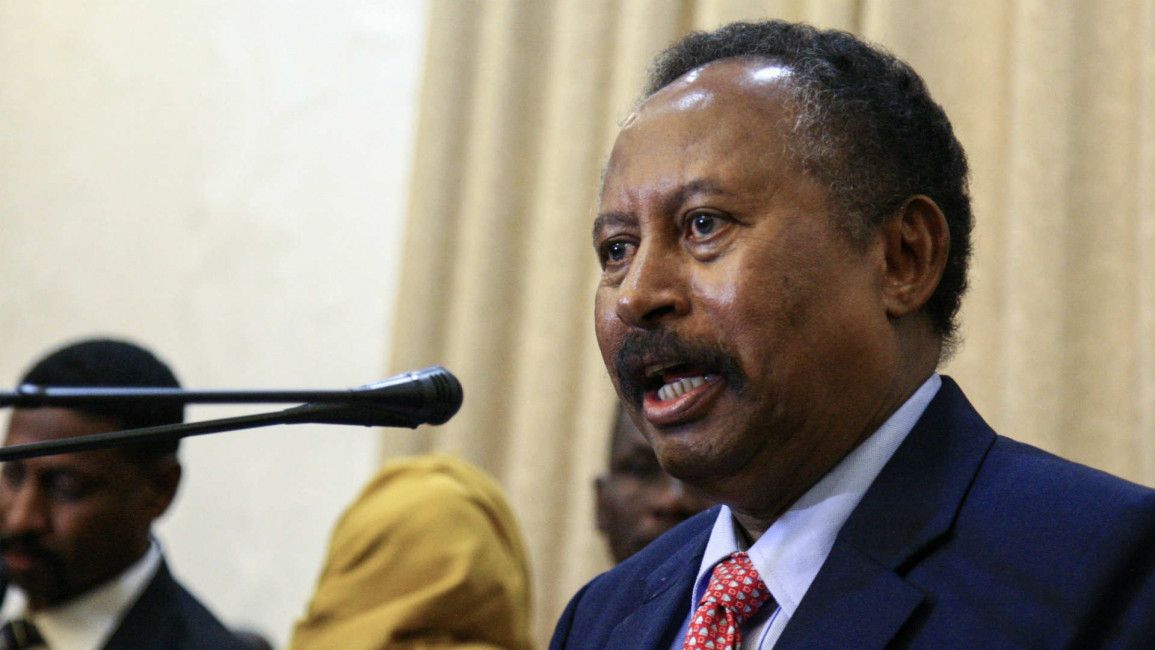Sudan's new prime minister seeks to end 'pariah' status, conflicts to save economy
Sudan's new prime minister said on Sunday that ending his country's international "pariah" status and drastically cutting military spending were prerequisites for rescuing a faltering economy.
Abdalla Hamdok, a respected former official with the UN Economic Commission for Africa, told The Associated Press that he had already entered into discussions with the US to see Sudan removed from Washington's list of countries sponsoring terrorism, and portrayed their reaction as positive.
While the US lifted most of its sanctions on Sudan two years ago, the process of removing all of the crippling sanctions and remove Sudan from the state sponsors of terror list ground to halt when protests broke out in the country last December.
"For 30 years, we were isolated," Hamdok said. "We were treated as a pariah state. We want to tell the world we are moving away from sanctions, issues of punishment and all that, to a Sudan that is coming back to the fold of normal nations."
Sudan's removal from the state sponsors of terror list would be "key to anything that we can do in this country", he said, adding that a "democratic Sudan is not a threat to anybody in the world".
He also urged the drastic reduction of military spending, hoping for a "peace dividend" if current efforts to negotiate deals with armed rebels are successful.
Military spending can take up to 80 percent of the state budget, he said, adding that ending the country's conflicts could allow military spending to be limited to 20 percent of the budget.
Despite a civilian taking up the premiership, tensions between the military and civilians persist.
The military retains a high-profile role in the unruly new transitional government, taking the leadership of the sovereign council for the first 21 months of the three year period before general elections.
Hamdok may face trouble instituting such drastic reforms in a country that has long seen the military in the top ranks of power.
Read more: 'Economy saviour': Who is Sudan's new prime minister?
Jehanne Henry, a Sudan researcher at Human Rights Watch, said that Hamdok faces an uphill battle and must "work with the generals, who could veto things".
Hamdok told Reuters on Saturday that Sudan was in need of $8 billion in foreign aid over the next two years to cover its import bill and help mend its critically damaged economy.
Hamdok has said his aim is economic stability and a properly managed currency, along with transparency and opportunities for foreign investors.
Removing Sudan from the state sponsors of terrorist list would open the door to foreign investment and allow the country to receive a sorely needed International Monetary Fund and World Bank bailout package, Hamdok told the AP.
Sudan's total debt nears $60 billion, with interest on debt payments around $3 billion, according to the prime minister.
Hamdok added that he wants to bring all state spending, including for the military, under the control of the ministry of finance.
Non-military spending should go to development issues, including health, education and infrastructure development, the prime minister said.
Hamdok hopes an end to Sudan's conflicts with armed rebels will enable his transitional government to stabilise the economy, which largely stagnated under ousted President Omar al-Bashir and sharply deteriorated last year.
The power-sharing deal inked this month between the military and protesters calls for the government to reach a peace agreement with armed groups within six months.
Hamdok said that immediately after the new government is formed, a "peace commission" will be established to try to reconcile with the country’s armed groups.
The prime minister added that there would need to be accountability for violence committed against rebels and against the more than two hundred protesters killed since December.
"Justice has to be resolved. And it has to be seen as being achieved," he said. "We will have to reach a conclusion that satisfies the victims."
"In the past there were no intentions from both sides, the government and the armed groups, to reach an agreement," he added. "But today there is resolve, there is determination."



